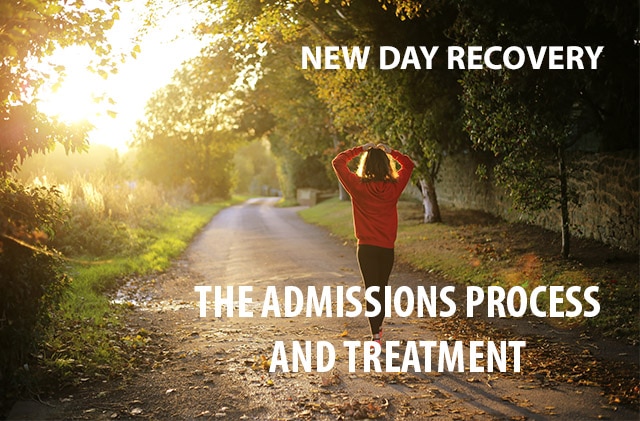What Makes a Great Drug and Alcohol Rehab Program?
Ultimately, what makes a great drug and alcohol rehab program is that it’s the program that works for you. Every person’s journey out of addiction and into recovery is intensely personal, and every individual has unique life, health and other factors that impact their recovery. While there are certainly best practices when it comes to alcohol and drug rehab, not all of them are the same, and it’s important to consider what you need out of treatment before making a decision on a program whenever possible.
If you’re not sure what type of rehab might be right for you, contact New Day Recovery today. Our admissions counselors work with you to understand your situation and make recommendations for what type of recovery program or treatment might be right for you.
Here are five factors to look for in any type of rehab.
1. Continuum of Care
Recovery isn’t a one-and-done treatment, which means it’s important to look for a provider or program that offers continuum of care. First, within the inpatient environment, you may need to go through a process of detox and recovery. That might begin with medically assisted detox that helps you get through withdrawal periods before moving on to cognitive behavioral therapy and other treatment methods to help you learn about your addiction and how to live a drug- or alcohol-free life.
But continuum of care refers to an even bigger picture. Once you’re discharged from an inpatient program, you may need to step down through increasingly less intense forms of therapy and treatment. Depending on your needs, those steps might include any of the following.
- Partial hospitalization
- Intensive outpatient treatment
- Individual or group therapy
- Following up with your medical doctor
- Participation in AA or NA meetings
It’s important to choose a drug or alcohol rehab program that offers planning and support for the entire continuum of care. That doesn’t mean you have to choose a provider that offers all these types of treatments, but they should be ready and willing to work with you to create a viable discharge plan, including referrals for follow-up treatment and appointments.
2. A Holistic Approach to Recovery
Look for a rehab program that offers services that focus on the entire person. For example, medically assisted detox addresses physical issues that arise when you stop taking drugs or drinking alcohol. Group therapy sessions may focus on the habits and triggers that lead to substance abuse, helping you learn and develop healthier coping mechanisms to live your life to the fullest.
And while both of those are very proven approaches to treating addiction, they are not holistic.
Look for a program that also considers your mental and emotional state and needs, offers education about nutrition and exercise, allows you to develop coping mechanisms in different environments with recreational therapy and involves your family in therapy if appropriate. Holistic treatment is critical to long-term success with sobriety.
3. On-Site Medical Staff
Ask about certifications when you’re considering a drug or alcohol rehab program, and ensure that there are certified medical staff on-site.
Without the right medical staff, a program can’t offer medically assisted detox. Medically managed detox lets you remain more comfortable during the first days and weeks you stop using drugs or alcohol; doctors and nurses are able to treat withdrawal symptoms with medication and other clinical interventions. Medical staff can also work with you throughout rehab as needed to ensure proper management of any medication you may be on or need.
Another benefit of having medical staff on hand is safety.
During detox, the staff can reduce the chance of concerning withdrawal symptoms such as seizures. And if those issues do occur, they are there to help you through them safely. Even later during rehab, it can be comforting to know that trained medical staff are on hand to assist with minor issues you may experience during recovery.
4. Case Management and Counseling
Case management and counseling are two critical components of any recovery program. Counseling may come in the form of individual, group or family therapy. Consider your individual needs when determining whether a program offers the right types of counseling for you.
- Individual therapy lets you explore a variety of unique issues related to your life, stressors and addiction. You do this in a safe, confidential environment with a professional counselor who can help you understand how factors in your life may be related to your substance use.
- Group therapy lets you explore similar, broader themes in a group environment. You get the option of sharing your story and can hear from others who are at various points in recovery to learn from them. Groups often discuss triggers, addiction and substance use and fears about stepping back into regular life sober. Learning that you aren’t alone in many of these concerns can be helpful.
- Family therapy allows your loved ones to begin the healing journey alongside you. It also lets them begin to learn more about addiction and what recovery might mean for you and for them.
Case management is not the same thing as counseling; it’s the process of managing your care for a positive outcome. Case managers work with you to ensure a collaborative approach to treatment between you and all of the professionals involved. They help ensure that you, the medical teams, therapists, recreational staff and anyone else is on the same page.
They can also work with you as you become ready to take the next step in recovery to ensure your aftercare is well planned, that you know about and have access to appropriate assistance programs and that you’ve received the referrals and follow-up appointments needed to support you during long-term recovery.
5. Support for Multiple Recovery Methodologies
Finally, it can be a good idea to ensure that a treatment program supports multiple recovery methodologies. What works for one person isn’t always what will work for you, and a program that can address your individual needs is going to be more successful for you than one that takes a cookie-cutter approach to rehab.
Call New Day Recovery to find out more about our holistic approach to drug and alcohol rehab. Our counselors are ready to take your call, and we can help you understand if our program is right for you or make a referral to one that is.









 Even though Valentine’s Day has passed, we strive every day to show love to our family and friends. However, loving someone close to you who is struggling with addiction can be a challenge. Learning how to give love and support in this unique situation is something that needs to be practiced every day during someone’s journey to recovery. Read below for 5 tips about how to love someone with addiction.
Even though Valentine’s Day has passed, we strive every day to show love to our family and friends. However, loving someone close to you who is struggling with addiction can be a challenge. Learning how to give love and support in this unique situation is something that needs to be practiced every day during someone’s journey to recovery. Read below for 5 tips about how to love someone with addiction.
